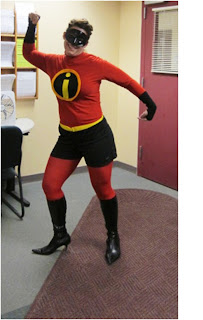The training addressed the need for 8-10 hours of sleep for athletes (teens also) to allow their brain (CNS) to recover from sport activity. Intense performance may take 48 hours for full CNS recovery and about 24 hours for physical recovery. Protein and carbs are necessary to get into your system within 10 minutes of sport practice or game. One episode of being drunk results in 14 days of lost performance. A person will not reach their peak performance ability for two weeks following that excessive drinking. For more: https://www.facebook.com/pages/Life-of-an-Athlete/157110224306768
Lesson Learned:
Give a kid an inch and they'll take a mile! I love that this saying fits with these concepts. Today I attended a Life of an Athlete meeting with our student athletes and coaches and administrators. It was so incredible to hear the students plan our Athletic Awareness night and care about educating their peers on these concepts. Our students are going to share what they learned and the expectations they have for their peers at an awareness meeting next week before all fall sports start for the season. The lesson I have learned from this is that there are high school students who really do care about doing the right thing in regards to decision making, sportsmanship, drugs/alcohol/drugs, and team goal setting. I am very excited to see students invested in changing the school culture and the culture of the community. I realize this takes time and I think the students do too. I am hoping to see the positive change (even a small one) this year.


